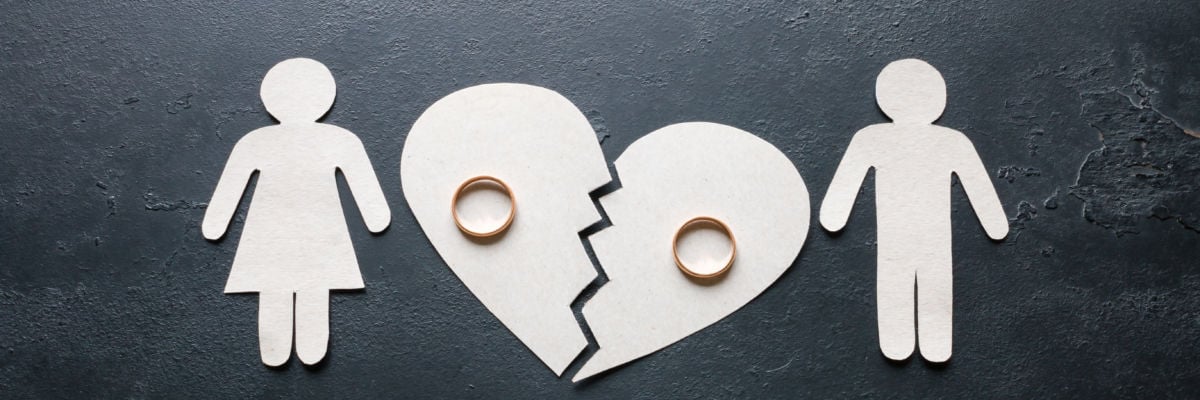
In this insightful clip, Cy Kellett speaks with apologist Joe Heschmeyer about the challenges of navigating faith within a marriage when only one spouse feels called to the Catholic Church. Joe emphasizes the importance of prioritizing one’s relationship with Christ, even when it creates tension at home, and offers guidance on how to approach these sensitive conversations with love and understanding.
Transcript:
Caller: I really, really felt the calling to become Catholic, but at the Easter vigil. But my husband is absolutely against it. He is kind of in the school of thought of, you know, Catholics worship Mary, Catholics pray to dead people, you know, all the.
Joe: Sure. We get a fair number of those calls. Yeah, yeah.
Cy: Okay. Right. That.
Caller: And this is hard to say out loud, but he was even so upset and so distraught at the idea that he said to me, I would never have married a Catholic girl and I won’t be married to a Catholic girl, and basically kind of threatened divorce. So I went back to my parish priest and he, you know, after a long talk, he had said, you know, you’re a wife and mother first and foremost, and just keep it in prayer. And so I’m at the point where I feel like I’m disobeying God by not coming into the church.
Cy: Okay.
Caller: But it’s also causing a lot of conflict within my marriage.
Joe: Yeah, that is one of the hardest situations. You know, children whose parents won’t let them go to Mass is maybe number one. And then in the cases of spouses. And I think it’s fair to point out that there’s something that is radically inhibiting your freedom in your husband’s behavior. And I understand, you know, his perspective on this. He didn’t sign up for that. In his view, he didn’t expect you to have this change. But the healing has God to blame. Like, you’re obviously a faithful Christian seeking to understand the Lord better. God has called you in a certain way, and he is trying to tell you you can’t follow where Jesus is calling you as you have discerned.
And I think if you put it in those terms, he is directly interfering with your path of discipleship. And I think if you can lay that out now, I don’t know the details of your marriage, but I would encourage, rather than focusing on trying to convince him to become Catholic right away, just getting him to recognize that our duty is actually to Christ first. I mean, Jesus talks about how he comes to set Father against Son and Son against Father in Luke 12, and then in Luke 14, he even says, if anyone comes after me and does not hate his own father and mother and wife and children. Now, in your case, husband, not wife. But hate obviously doesn’t literally mean hate there. It’s hyperbolic.
But there is this sense in which our following of Christ has to be first and foremost. And we can’t let someone else determine our discipleship for us by telling us we’re not allowed to follow where Christ is calling us. That is just not. That’s not an appropriate boundary for one spouse to try to dictate that for another. Like, you have to follow where Christ is leading you. And I mean, the flip side is actually true as well. If a Catholic is having a crisis in faith, their spouse can’t just be like, well, you can’t have a crisis in faith. That’s not acceptable. That’s an inappropriate boundary for one spouse to try to assert over another. You have to follow where you believe Jesus is calling you. And no human being has the authority to stand in the way of that.
And everyone needs to take that seriously. Like, that is an actual, you know, this. You’re not a minor child. Where, you know, there’s a better case that like, parents have some role in restricting their kids’ radical freedom. So if a kid just says, I don’t want to go to Mass on Sunday, that doesn’t have to be the last word. You’re a grown-up. You’re an adult woman. And so I think you have to say, I need to follow Jesus. And I think if you put it in those terms and pray about it fervently, I would even suggest fasting and doing mortifications for it, for a softness of his heart. Just to accept that you as a Christian need to follow where you believe Christ is calling and that to impede that and to delay. When Christ is saying go, and you say, I’m not going to go yet. I’m going to wait till a more convenient time, that constitutes disobedience.
Just as much as when you tell your kids, come to the car and they say, once I’m done with the video game. The fact that they intend to do it eventually isn’t obedience, it’s, you know, putting you on their schedule. And I realize as I’m saying this, this is heavy and hard teaching. This is one of the aspects of the high cost of discipleship. And I want you to be assured of my prayers. And I don’t know if you feel comfortable sharing your husband’s name on the air, but we’d love to pray for him as well.
Caller: Yeah, his name’s Scott.
Joe: All right, Stephanie and Scott, I’ve got a sister named Stephanie married to a guy whose brother’s name is Scott. So I’ll remember that, hopefully.
Cy: Stephanie, have you come. I just want to clarify something. Have you come to the decision that the Catholic Church is Christ’s Church and that that’s where you’re called?
Caller: To be 1,000%. And for the first time in my life also, I finally feel like the true peace that I’ve always been serving. And I can finally say that I now love Jesus more than my husband, my children, my parents. He’s like my absolute number one. And I want to do nothing more than what he tells me to do.
Cy: What a beautiful testament.
Joe: You know what? I think you should point to that testimony as well. Like, hopefully your husband can see that you have been transformed to become more Christ-like. Even if it goes against all of his prejudices against Catholicism, and hopefully if he will endure this period, even just for the sake of your following of Christ, you can be a living witness to the fact that someone can love Jesus and be Catholic. And in fact, that the more Catholic you become, the more you end up loving Jesus.
And the thing that Christ is calling you to is to receive Him. Like, you’re struggling with anxiety and depression, and he’s saying, I want to live with you. I want to be with you. And so I do want to. This is clearly going to be a process. Even if you were free to come into the church now, you would have to go through the OCIA, but you’ve come to faith in the Catholic Church, which makes you one of us. And you are baptized or not baptized?
Caller: Yeah. So I was raised Lutheran, so I was baptized as an infant.
Cy: Has anyone told you about making a spiritual communion with Jesus?
Joe: I don’t think so.
Cy: Well, you can just type in EWTN Spiritual Communion, and it will take you to a page with a little prayer where you can make a spiritual communion with Jesus because He wants communion with you. He’s clearly telling you he wants communion with you. You can do this while you’re watching a Mass on the television or on the YouTube or whatever, but you can do it anytime. You can make a spiritual communion with Jesus. It’s communion with Jesus that heals. And you already know that. So I’m just trying to let you know there are intermediate steps that you can take as you’re moving towards full communion. Okay, Stephanie?
Cy: Okay, I will do that. Thank you.
Cy: If there’s anything we can send you, just tell us. John will pick up in a second. John’s covering. If there’s a book or anything that you’d like from us, we’ll send it to you. If not, that’s perfectly fine. We understand. And you’re always welcome to call back here. I hear the music, which means we.
Joe: Have to take care of everyone listening. Pray for Stephanie and Scott.
Cy: Please do. Pray for Stephanie and Scott and pray. How beautiful is Jesus. I mean, every time I hear someone’s story like that, he wants to be with us in the Eucharist. He wants to be in communion with us. He wants to make his home with us. And how beautiful it is when he calls us to that.



